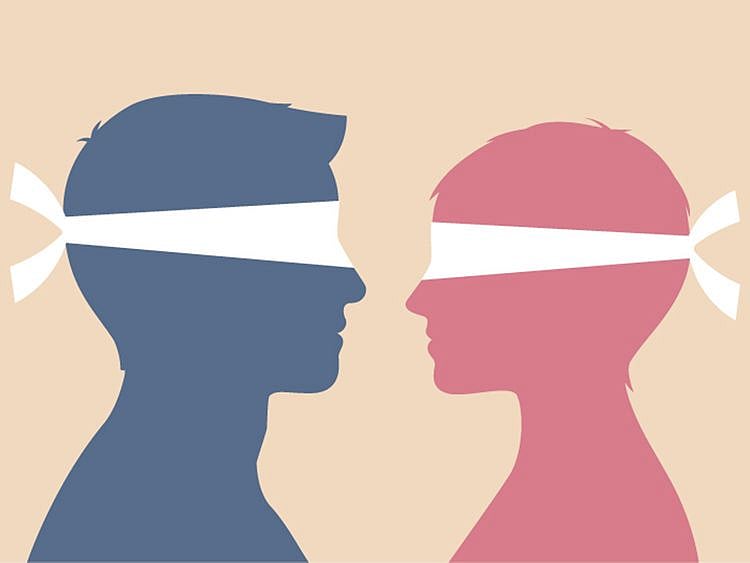Can’t remember faces? It might be face blindness
Losing friends because of prosopagnosia? Get it checked, say neurologists

Many of us do this often, use terms or say that things that have more far-reaching consequences in reality. For example, how many times have you heard: “I just don’t remember that person’s face. I must be losing my memory!”
The truth is that, in reality, if you cannot place faces easily, there is a serious neurological issue at play. This symptom, termed as ‘face blindness’, has serious consequences.
Prosopagnosia and what it means
Prior to my research and conversations with neurologists, I used to say that I was bad with faces whenever I couldn’t recognise someone. However, this isn’t just a tendency.
According to Dr Mohamed Ahmed Elshafei, specialist neurologist at Zulekha Hospitals Dubai, if the inability to recognise faces is persistent then it could be a symptom of prosopagnosia, the medical name for face blindness.
He explains that face blindness is a neurological disorder of face perception that affects a small organ called the fusiform gyrus, located in the temporal lobe of the brain which is somewhere near the temple area of your head.
People who are born with it or those who have acquired it later on in life are unable to recognise faces, even the people they know best, including their own reflection in the mirror. Everyone looks the same – a stranger.
Can they not see too well?
People with prosopagnosia have normal vision and the ability to see detail, but they can't put all this information together to properly perceive a face. They can't remember faces. They can't read emotional expressions, and they struggle when asked to describe one person's face in comparison to another.
A quick Google search will tell you that 1 in 50 people suffer from this disorder. As per the Institute of Human Genetics in Germany, two per cent of the general population may have prosopagnosia. It is primarily a hereditary disorder.
The condition has also received a significant share of the public’s attention after American author Jean Gilbert penned down her struggles with prosopagnosia in her memoir, The Picasso Mirror. Others, such as well-known British primatologist and anthropologist Dr Jane Goodall and Hollywood actor Brad Pitt have also revealed that they have face blindness.
So what does face blindness indicate?
Dr Elshafei advises that it’s important for everyone to know more about this condition as it could help with the early detection of other underlying illnesses.
If symptoms of face blindness are present from birth, it’s important to investigate whether the person suffers or has the probability of falling victim to either dementia or Alzheimer’s disease. Dr Elshafei adds that the “the most common cause of acquired prosopagnosia or face blindness is either a stroke, a brain lesion [damage] or a certain brain injury [on or near the temporal lobe]”.
Dr C B Binu, Child and Adult Psychiatrist at Al Fasht Medical Centre, Sharjah, explained the condition’s link to social anxiety – a fall-out of face blindness. Imagine suffering from emotional pain and distress that unlike physical pain, is not easy for others to see and understand.
“It can be very disconcerting for the person who has face blindness, as they do not know how to relate with people or it could be socially embarrassing,” says Dr Binu. This would hold especially true if the person isn’t aware that they might have prosopagnosia. They could become socially withdrawn, which could lead to depression, panic attacks, social isolation or social anxiety, he adds. It would affect all their personal relationships.
In a recent interview with international US Magazine, Brad Pitt talked about his ‘prosopagnosia’ and how he struggled over the years to remember people in social settings. He is quoted by the magazine as saying: “Nobody believes me!”
Is there a cure?
Globally, research is underway to find a cure for prosopagnosia, meanwhile therapy that works with using identifying cues as memory aids are helping people manage their symptoms on a day-to-day basis. As with many prosopagnosiacs, who rely on non-facial cues to distinguish people, therapists train them to identify using the tone of a person’s voice, a certain way of dressing or information like where a person is from, explains Dr Binu. “It could even be as simple as saving images of people you meet often on your phone to remember them later.”
So far, there is no cure to restore normal levels of recognition. However, other than managing symptoms, Dr Elshafei believes that treating the cause, if there is a lesion or brain injury, could help those with acquired prosopagnosia. He advises that anyone suffering from the following symptom must seek immediate medical attention:
• Inability to recognise faces of family members, co-workers or famous people
Going back to from where I started, the next time you say you don’t remember a face or place, check if it is a serious issue or it might be that you just weren’t paying attention.
Sign up for the Daily Briefing
Get the latest news and updates straight to your inbox
Network Links
GN StoreDownload our app
© Al Nisr Publishing LLC 2026. All rights reserved.